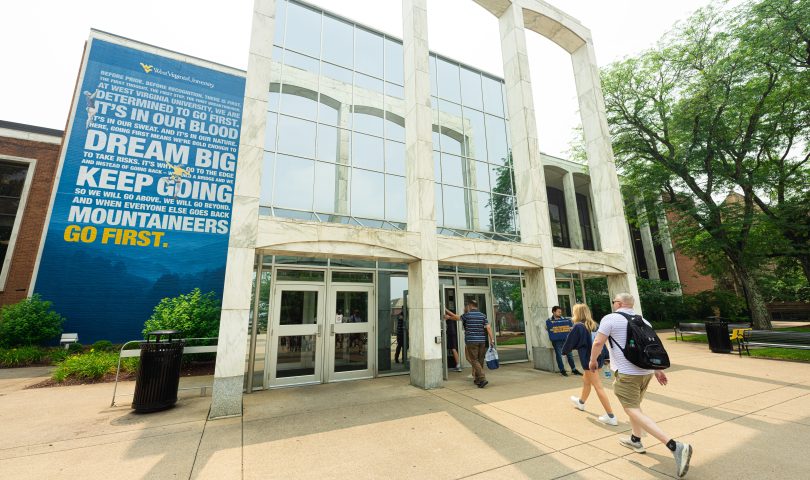As West Virginia University students and faculty begin another semester, talks about the recently proposed cutbacks and faculty lay-offs have left some students worried about the future of their programs and the school as whole.
University officials project around 2% of the student population will be affected by the proposed changes and maintain the wants of students have been heard through the majors and programs they’re enrolling in and, more importantly in this case, not enrolling in.
The Dominion Post spoke with several students on the downtown campus Wednesday to gauge the true feelings and concerns of students.
In general, the majority of students we spoke with admitted they were aware of the cutbacks proposed by the university but did not feel they knew enough to form an opinion. Many noted their personal degree program was not listed as one on the chopping block, so they were not concerned.
A small group of incoming freshmen found enjoying the day outside the Mountainlair all agreed that while excited to start their college experience, they felt a little nervous beginning their higher education journey at a school in turmoil and were already considering changes to their chosen majors due to the programs being on the list for elimination.
Another lamented they would be forced to leave the university, and in turn the entire state of West Virginia, to find a school with a dance major should the proposal be approved.
While many students may be uninformed or uninterested in the programs that are in danger because they believe it won’t affect them, the cofounders of the newly formed West Virginia United Students’ Union (WVUSU) believe they are just unaware of the damages an approval of this proposal would cause.
One of their goals now and moving forward will be to get that message out there.
Fourth year mathematics major Matthew Kolb and sophomore Chinese studies major Christian Adams, both West Virginia natives, said the idea for the union began at the end of last year’s spring semester.
Adams said he had a lot of interest in the linguistics program and teaching English as a second language, but during a meeting with faculty he was informed that as of that day all the faculty were told that their programs were under review and would likely be cut.
“I knew that most students didn’t even know about it,” Adams said. So, just before spring finals, he started doing everything he could to reach out to classmates and those he felt would sympathize.
By the end of summer, Adams, Kolb, and a few others had formed the WVUSU, which is now officially affiliated with West Virginia Campus Workers and over 200 members strong and growing daily. They are planning a coordinated student walk-out on Monday at both the downtown and Evansdale campuses.
“I believe, the university has intentionally left students out of the conversation entirely,” Adams said. “They told it specifically to program coordinators right before exam week and they worked on it all summer long and will vote on it within a month of school starting.”
According to Adams, the university is “only counting people once, as in, they are only counting them for their first major. If you’re a business major, but you’re also taking Chinese and majoring in Chinese, they’re not counting you as a Chinese major, they’re only counting you as a business major.”
Adams believes it would make sense if dual majors were at least counted as half, “but they’re not doing that – they’re just not counting them at all.”
The duo believes these inaccuracies are in addition to several other inconsistencies in the data being presented by the administration.
As far as those who feel they will be unaffected by the cuts, Adams and Kolb encourage them to take a deep look and really think about what cuts to certain departments might mean.
For example, they said they have spoken to several engineering majors who did not see how the cuts would change their education.
Kolb, a mathematics major and former engineering major, pointed out that the graduate program for mathematics was one of the programs possibly being cut.
“You have to take calculus 1 through 4 and I’ve actually had graduate students teaching those courses before and that helps keep the class size down. But they are not only trying to do away with the graduate program, they’re also eliminating some faculty,” Kolb said.
This means the pool of people to pull from to teach these courses will be smaller and would likely make class sizes bigger, making it more difficult to ask questions and using larger rooms with seats further away from the board.
This was just one example of ways unsuspecting students might be affected should programs be cut. Adams and Kolb said they are working on starting investigations into the potential effects the cuts will have throughout all programs.




